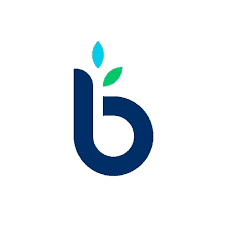
Need help getting funds? Get matched with lenders instantly
Answer some basic questions in less than 3 minutes with no impact to your credit score and compare multiple offers. No commitment, no hassle.
Get MatchedPatreon crowdsources funds from your fans through a subscription model. Could it be a good fit for your business?

| Total Rating |
4.3 |
|---|---|
| Terms & Fees4.3 | |
| Project Qualifications4.4 | |
| Application Process4.6 | |
| Sales & Advertising Transparency4.8 | |
| Customer Service3.6 | |
| User Reviews3.2 | |
Table of Contents
Patreon is a crowdfunding site aimed at a particular audience: artists and online personalities in the business of continuous content creation. As crowdfunding platforms go, Patreon has enjoyed a meteoric rise in its public profile over the last several years.
Patreon’s ongoing approach to rewards-based crowdfunding sets it apart from platforms like Kickstarter. With the latter, backers support creators with one-time pledges in exchange for rewards. Patreon’s model is that backers — patrons, as Patreon refers to them — subscribe to a creator’s content, making recurring payments on an ongoing basis in exchange for access to paywalled content.
This funding model makes Patreon particularly well-suited to creators of viral videos, online journalists, writers, and musicians.
Patreon enables entrepreneurs and creative teams engaged in any ongoing endeavor to get paid directly by the people who want to consume their content and support their goals. Additionally, the platform has become more open to businesses such as restaurants and local venues. Nonprofits can now use Patreon as well.
Entrepreneurs and firms raising money for specific projects (tech startup projects often fall into this category) will likely find Kickstarter or Indiegogo to be a better crowdfunding fit. If you’re raising money for personal needs, such as a medical emergency or college tuition, go with GoFundMe instead.
| Project Qualifications4.4 |
|---|
| Availability 4.0 |
| Transparency 5.0 |
A major factor in Patreon’s initial appeal to creators had been that Patreon’s content restriction policies were more relaxed than those of other crowdfunding platforms.
However, disputes arose over the banning of certain campaigns for contravening the company’s hazy guidelines regarding adult content and hate speech. In response, Patreon released a more definitive list of community guidelines on its website that spell out what is forbidden on the platform:
Patreon won’t work for every business, but if you plan to continuously provide content and it meets the community guidelines, getting on the platform is pretty simple.
| Terms & Fees4.3 |
|---|
| Affordability 4.0 |
| Campaign Terms 5.0 |
These are the current terms and fees for Patreon’s crowdfunding campaigns:
| Funding Duration Limit | Unlimited/Continuous |
| Funding | Per month OR per creation |
| Platform Fee | 10% |
| Payment Processing Fee | 2.9% + $0.30 for donations over $3 OR 5% + $0.10 for donations of $3 or less |
As of August 2025, all creators are now charged a platform fee of 10%. Existing creators who launched before this change will continue to pay 8% (Pro) or 12% (Premium).
In addition to the platform fee and payment processing fees, there are also payout fees to consider. These fees are payable when you move funds from your creator balance to your bank or PayPal account. These fees are as follows:
Once your page goes live, you can add posts to it, which can either be viewable by everybody or restricted to your patrons (at a reward level of your choosing). As for funding, you can choose to either get monthly payments from your patrons or “per creation” payments.
You can also set up “goals” that will be reached when your funding level hits a certain amount. These goals are non-binding and can be changed at any time.
| Application Process4.6 |
|---|
| Prescreening & Application 5.0 |
| Campaign Funding 3.8 |
Patreon’s application process is a breeze. Just start setting up your account, enter some basic personal information, attach your social media accounts, set up a payment method, and you can start earning money for your creations. There’s no lengthy prescreening process required.
After you’re on the platform and begin gaining subscribers, you can set your payments for automatic withdrawals on the fifth of every month. You can also initiate manual payments and receive funds in your account within one to five days of initiating the withdrawal.
Overall, we find the entire process to be quite simple.
| Sales & Advertising Transparency4.8 |
|---|
| Sales Practices 5.0 |
| Web Presence 4.6 |
Patreon is transparent regarding its services. Its website is professional, offers plenty of information, and isn’t gimmicky.
While Patreon does maintain social media accounts, updates are infrequent and don’t offer a ton of valuable information about the company.
| Customer Service3.6 |
|---|
| Personal Support 3.0 |
| Self-Service 5.0 |
For direct support, you can submit a question via the website or Twitter, and Patreon will respond via email from Monday to Friday, 9 AM to 6 PM PST.
| Patreon Customer Service | Availability |
|---|---|
| Phone Support | |
| Email Support | |
| Support Tickets | |
| Live Chat | |
| Dedicated Support Representative | |
| Knowledge Base or Help Center | |
| Videos & Tutorials | |
| Company Blog | |
| Social Media |
Patreon has FAQs for creator issues: one for patron issues and one for general issues. Patreon has profiles on Facebook, X/Twitter, and LinkedIn. Based on user reviews, the quality of support is good, although there are some complaints.
One thing Patreon doesn’t offer is phone support. Hopefully, at some point, Patreon will give creators this support option.
| User Reviews3.2 |
|---|
| User Feedback 3.0 |
| Review Site Aggregate 3.3 |
Patreon’s user reviews are mixed, with some users having no issues with the platform and others having multiple complaints. Like other crowdfunding sites, some of the complaints are logged by backers who have issues with their subscriptions or rewards.
Patreon receives 4.1/5 (based on 60+ reviews) on G2, 4.4/5 (based on 20+ reviews) from Software Advice, and 1.2/5 (based on 800+ reviews) from Trustpilot.
Some of the common complaints about Patreon from creators include:
While there are complaints, there are plenty of positive reviews. Here’s what users most like about Patreon:
Patreon is a solid, reputable crowdfunder platform, but it isn’t for everybody. If you’re looking to raise funds to launch one particular project, such as the creation of a cool tech gizmo, look into Kickstarter. If you’re trying to raise money for a personal cause, GoFundMe is the way to go.
If, on the other hand, you’re an indie video game developer, a cartoonist, an author, a podcast host, a musician, or you’ve garnered a huge YouTube following, Patreon is well-tailored for you. As it can be difficult to get people to make even a small recurring financial commitment to you, it’s enormously helpful if you’ve already built up a large YouTube following and/or a heavy Twitter presence.
Nonetheless, if you (or your business) produce creative goods that inspire people, Patreon’s platform is precision-engineered to help you monetize doing what you already love. It’s a boon to creatives everywhere, it’s easy to set up and maintain, and it’s a reason for renewed optimism about the power of the internet to create opportunities for those who lack an institutional platform.
Although Patreon has made a number of missteps over the years that have called into question its commitment to creators, Patreon has shown an ability to learn from its mistakes.
Find Funding for Any Credit Level
BusinessLoans.com  |
|---|
Explore a wide range of business loan options at BusinessLoans.com. With no minimum credit score requirement, find the perfect funding solution for your needs. Get Started.
Find Funding for Any Credit Level
BusinessLoans.com  |
|---|
Explore a wide range of business loan options at BusinessLoans.com. With no minimum credit score requirement, find the perfect funding solution for your needs. Get Started.
Want to help shape the future of the Merchant Maverick website? Join our testing and survey community!
By providing feedback on how we can improve, you can earn gift cards and get early access to new features.
 Our expert reviewers found BusinessLoans.com to have a quick and easy application process alongside excellent support and guidance for borrowers.
Start A Quick Application
Our expert reviewers found BusinessLoans.com to have a quick and easy application process alongside excellent support and guidance for borrowers.
Start A Quick Application
Help us to improve by providing some feedback on your experience today.
The vendors that appear on this list were chosen by subject matter experts on the basis of product quality, wide usage and availability, and positive reputation.
Merchant Maverick’s ratings are editorial in nature, and are not aggregated from user reviews. Each staff reviewer at Merchant Maverick is a subject matter expert with experience researching, testing, and evaluating small business software and services. The rating of this company or service is based on the author’s expert opinion and analysis of the product, and assessed and seconded by another subject matter expert on staff before publication. Merchant Maverick’s ratings are not influenced by affiliate partnerships.
Our unbiased reviews and content are supported in part by affiliate partnerships, and we adhere to strict guidelines to preserve editorial integrity. The editorial content on this page is not provided by any of the companies mentioned and has not been reviewed, approved or otherwise endorsed by any of these entities. Opinions expressed here are author’s alone.
 Our expert reviewers found BusinessLoans.com to have a quick and easy application process alongside excellent support and guidance for borrowers.
Start A Quick Application
Our expert reviewers found BusinessLoans.com to have a quick and easy application process alongside excellent support and guidance for borrowers.
Start A Quick Application